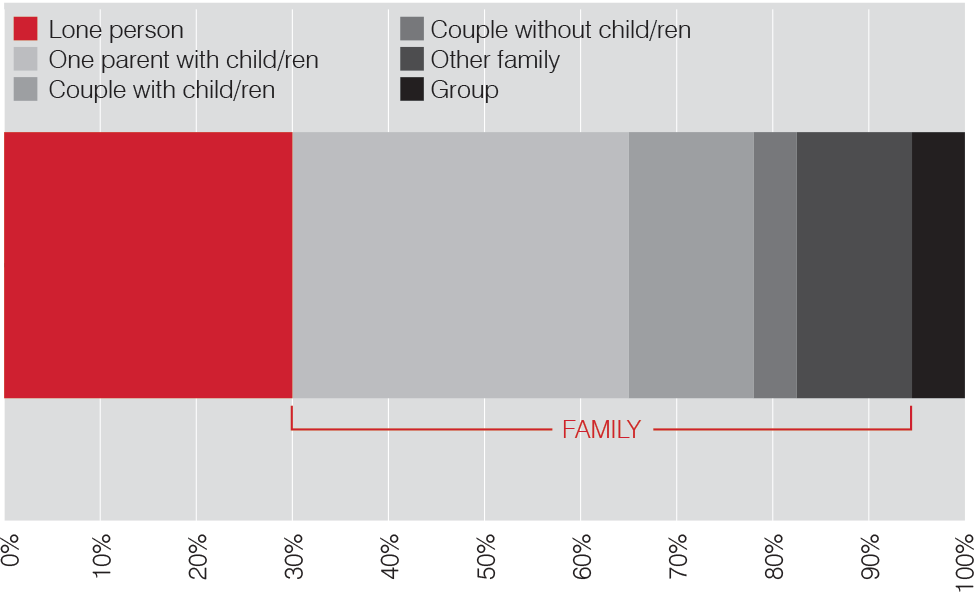
Family violence, poverty and lack of housing behind rising numbers of homeless families
Prevention and early intervention responses can help at-risk families before they become homeless
23 Jun 2020
Rising numbers of Australian families are experiencing homelessness from factors including family violence, poverty and a lack of affordable and suitable accommodation. How our homelessness system supports these families is examined in our latest research report.
The report, ‘A homelessness service system to support families’, was undertaken for AHURI by researchers from UNSW Sydney, University of South Australia and Swinburne University, and examined how well the homelessness services system works for families in Australia and where things could be improved.
When families face homelessness they can experience a range of difficulties such as limited access to alternative accommodation, disrupted routines, financial difficulty, loss of possessions and family pets, loss of social identity as a family, violence, trauma and fear, limited mainstream social and economic participation, and disruptions in schooling for children.
‘While homelessness services provide effective local support to families in many cases, they often cannot respond to problems of insufficient affordable housing supply, of poverty and gaps in other services, such as child welfare, justice, education and employment’
‘The impact of homelessness on children and parents is significant and ongoing and often homelessness service support responses cannot substantially alleviate this,’ says the lead author of the research, Associate Professor kylie valentine of UNSW Sydney.
‘Families who experience or are at risk of homelessness due to poverty or adverse events such as unemployment or illness have different needs from families whose experience of homelessness is caused primarily by domestic and family violence. This is a problem for the homelessness system as the single category of ‘families’ combines groups of people who have quite different experiences and characteristics and need different types of support.’
SHS clients by living arrangement, 2017–18 (%)

Source: AIHW (2019b) Specialist homelessness services 2017–18 Supplementary tables—National
The research identified a number of important aspects of well-functioning homelessness support services that operate in different areas at the local level, including access to permanent housing with support services (if needed), prevention and early intervention responses, and streamlined assessment processes to direct families to the most appropriate support.
‘While homelessness services provide effective local support to families in many cases, they often cannot respond to problems of insufficient affordable housing supply, of poverty and gaps in other services, such as child welfare, justice, education and employment’, says Associate Professor valentine.
‘As such, the homelessness service system is faced with significant challenges that are driven in part by the complexity of shared responsibilities between Commonwealth and state and territory governments, in part because of the range of individual circumstances and characteristics that place individuals and families at risk, and in part because homelessness is a function of employment and housing markets, personal experiences, and available services.’
Broader policy and program initiatives could incorporate a national homelessness strategy; boosting affordable housing supply; ongoing funding for Rapid Rehousing programs; prevention and early intervention responses; and supporting women and their children escaping domestic and family violence to establish secure housing. Supportive permanent housing and Housing First options combined with community-based services, permanent housing will assist families to avoid homelessness.
The report can be downloaded from the AHURI website at http://www.ahuri.edu.au/research/finalreports/330
